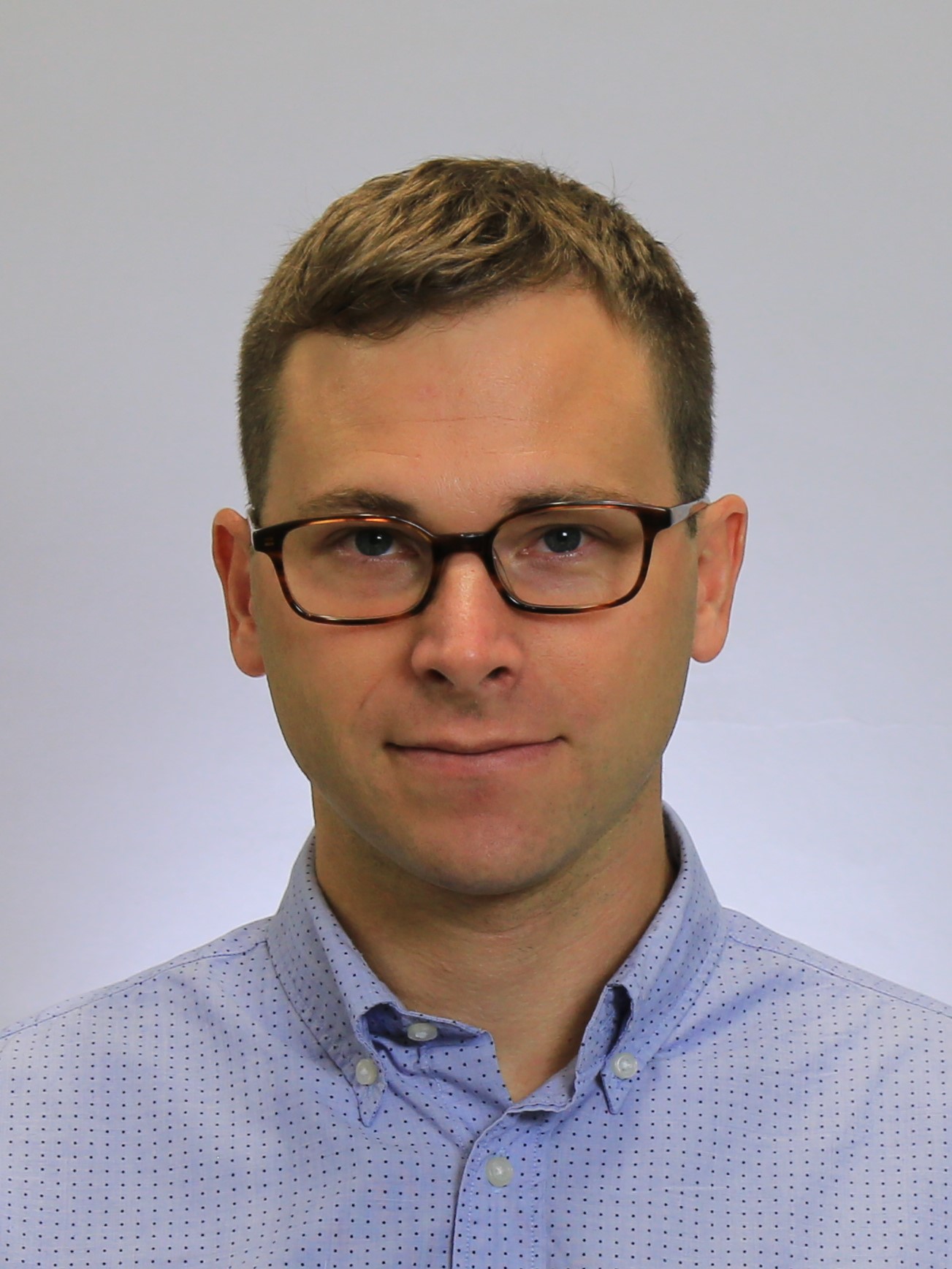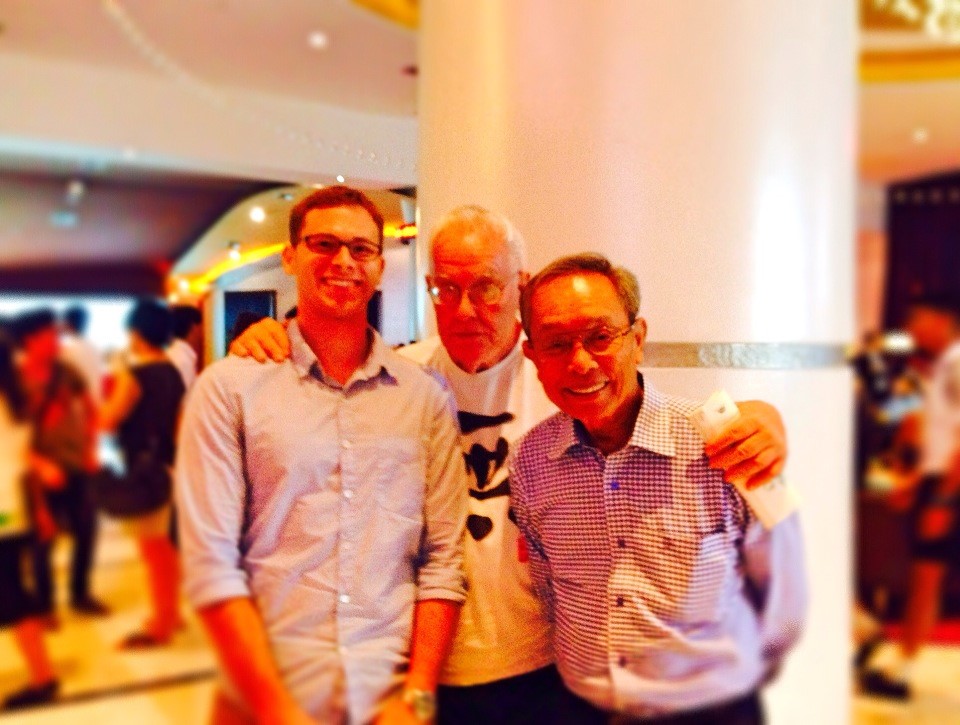REEDER, Matthew

VISITOR’S VOICE
Interview with Matthew Reeder ❯❯
History ❘ National University of Singapore
CSEAS Visiting Research Scholar: July 2024 to January 2025
DO YOU HAVE…?
MUST HAVE GEAR for
FIELD RESEARCH and WRITING
A good library
As a historian, my work relies in part on published books and articles. Many of these—especially in Southeast Asian languages—are not yet online. So, a good library is essential. Fortunately, the CSEAS library is one of the best around for the kind of work I’m doing!
Coffee
I like having coffee in the morning. Not only does it help to wake me up, but it also signals to my brain and my body that it’s time to work! Iced coffee is easy to find in Thailand, but I’m still looking for good places to get it in Kyoto.
Peace and quiet
I have trouble getting work done when there is a lot of commotion around me. So, I really appreciate a calm, quiet space where I can concentrate on reading and writing.
Interview
Legibility in Ink: Tattoos, Identification, and Labor Control in Nineteenth-Century Siam
01
Please tell us about your research.
I’m interested in how ruling elites and everyday/marginalized figures saw each other in Siam (Thailand) between the fifteenth and nineteenth centuries. My early research—that is, the focus of my dissertation and first book project—looks at how Siam’s royal officials and others increasingly made ethnic claims about the peoples in their kingdom for political purposes over this early modern period. I became interested in this topic when I first read the Chiang Mai Chronicle over 15 years ago. I noticed that later portions of the chronicle seem to mobilize ethnic labels far more frequently than earlier portions, and I wanted to understand why.
Over the past few years, I’ve also begun to look at the role of low-status individuals in the production of state knowledge. For example, I’m working on an article about how Siam’s nineteenth-century officials collected “intelligence” about ghosts, spirits, magic, and miracles through bureaucratic processes like taking depositions, conducting legal trials, circulating reports, and petitioning the crown—and how their witnesses and informants helped shape that knowledge.
Looking ahead, I am starting a new project on the control of laboring populations through tattooing in nineteenth-century Siam. By tattooing registration information and other symbols on the wrists of commoners, the crown simultaneously claimed their bodies and visually marginalized many of them. I am exploring how this practice contributed to, or frustrated, the expansion of the kingdom’s population. This is the project I will pursue while I’m here in Kyoto.
02
Can you share with us an episode about any influential people, things, and places you have encountered whilst doing your research.
When I first arrived at Cornell University in 2011, Benedict Anderson was still alive and attending events such as the weekly Southeast Asia Program brownbag (now the Gatty Lecture Series). By that time, he was always wearing shorts, even when it was pretty cold out, and often slippers, too. We corresponded a bit when my small grad student reading group read his book, The Fate of Rural Hell. Later, I met him in Bangkok, where he questioned me about my research and pronounced me capable enough in the Thai language to make a success out of it!
Some time later, we both attended a film showing organized by Prof. Charnvit Kasetsiri at the Siam Paragon movie theater in Bangkok (see image). At that time, it was virtually unheard of to remain seated as the royal anthem played before the movie began. But while I was standing, I glanced back and saw Ajarn Ben (as he was known to younger Thai studies folks) appearing fast asleep—and firmly seated—in the row behind me. I always wondered whether he was making a political statement, or if he really had just fallen asleep!

03
How do you overcome the difficulties in putting together the results of your research into a research paper or book?
It’s still very hard for me to craft a compelling piece of historical writing from scattered thoughts and extensive notes. It can be overwhelming, especially at first. I used to try to make space for every interesting piece of evidence, but this usually resulted in meandering, aimless prose. Now, after haranguing my students to build their papers around arguments, not the other way around, I’m trying to follow this advice myself!
04
What are your future ambitions as a scholar?
At the moment, I’d just like to get my first book done and make some progress on my new project. In terms of my career, I’m hoping for stability. Over the last six years, I’ve been a grad student, a postdoc, and then an assistant professor at two different institutions. Now I’d just like to settle down and concentrate on my work!
05
Why did you choose CSEAS, or what is your expectation here?
I’ve long wanted to come to CSEAS. So many mentors and colleagues have passed through the center that it almost feels like a rite of passage. But it makes sense in other ways, too. CSEAS has a fantastic library full of rare materials in Thai and Western languages. I’ve also wanted to learn from Prof. Junko Koizumi, my counterpart at the center, as she has done extensive research on the registration and management of commoners in nineteenth-century Siam, which is related to my new research project on tattooing. And Kyoto is a beautiful, vibrant, cultural city that I want to get to know better. For all these reasons, I am grateful for the opportunity to spend some time at CSEAS.
(July 2024)
* The views expressed herein are those of the authors and do not necessarily reflect the views of the Center for Southeast Asian Studies, Kyoto University.
References
Anderson, Benedict R. O’G. 2012. The Fate of Rural Hell: Asceticism and Desire in Buddhist Thailand. Calcutta: Seagull Books.
Matthew Reeder is an assistant professor of history at the National University of Singapore (NUS). He is a historian of Southeast Asia and its global interconnections, with research interests in ethnic categorization, knowledge production, and labor control in Siam (Thailand) before the twentieth century. Before joining NUS, he was a postdoctoral fellow at the Asia Research Institute and an assistant professor at Yale-NUS College. He received his doctorate from Cornell University, where his dissertation earned the Messenger Chalmers and Lauriston Sharp prizes.
Visitor’s Voice is a series of interviews to showcase our fellows while they stay with us at CSEAS. The interview highlights their research activities while also introducing the people and episodes behind the work, must-haves for field research and writing, book recommendations, future ambitions, etc., in a question-and-answer format.
